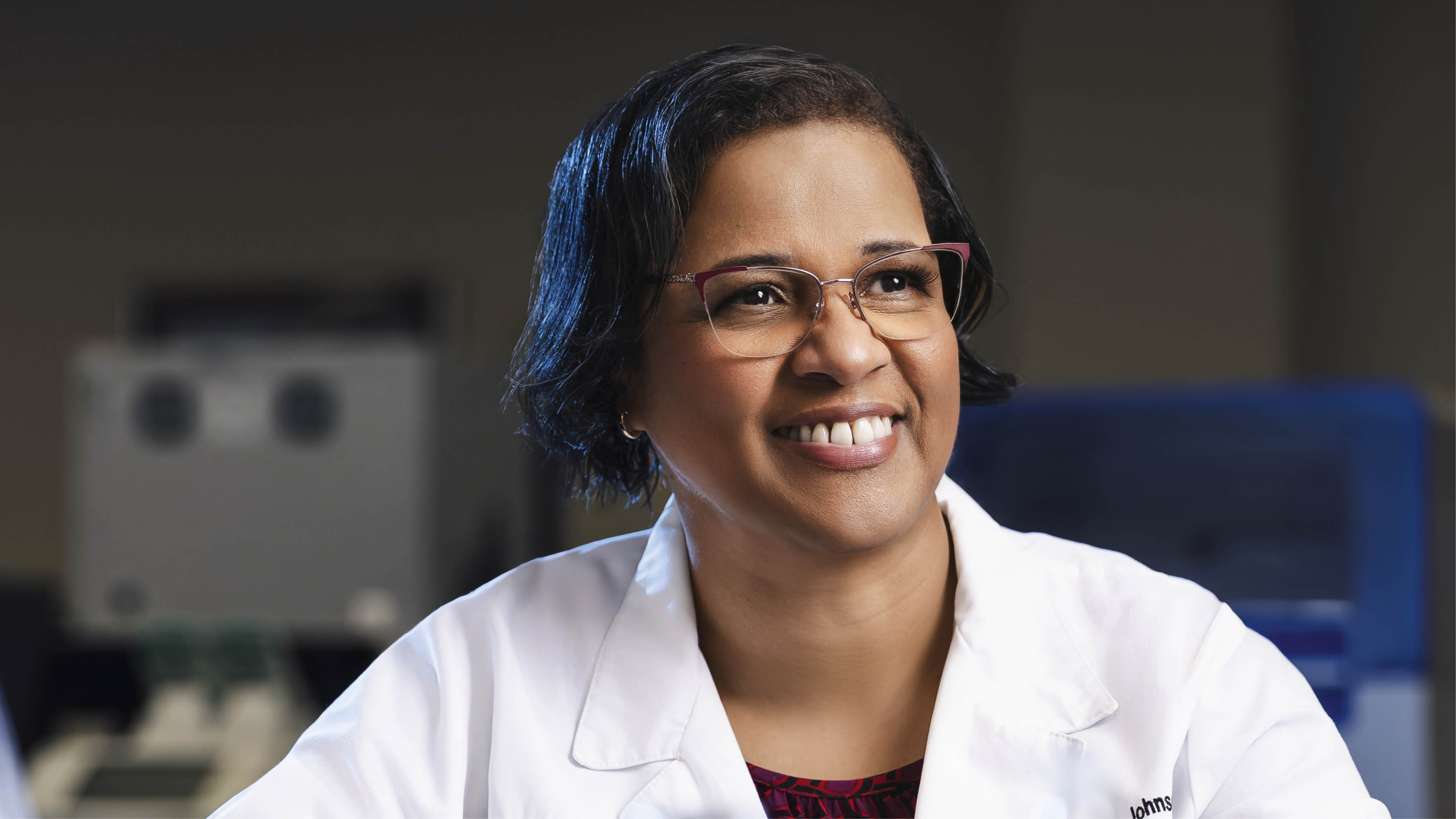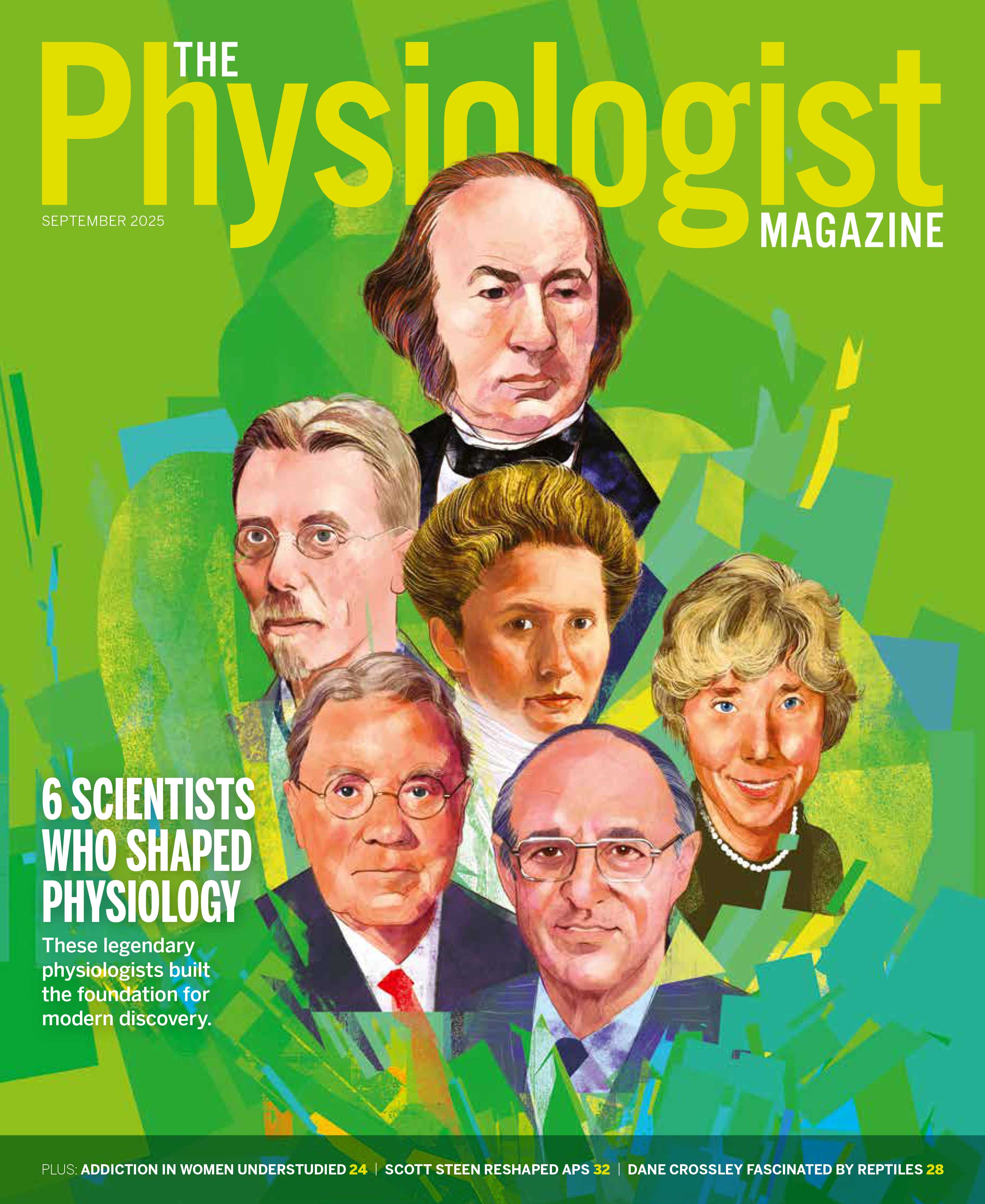More Than A Mentor: Empowering HBCU Scientists
Evangeline Motley-Johnson empowers the next wave of researchers through mentorship, education and physiology research.
By Melanie Padgett Powers

Evangeline Motley-Johnson, PhD, FAPS, has long been committed to both Meharry Medical College and mentoring young researchers, especially Black graduate students and early-career physiologists.
As a Black physiologist and first-generation college student from rural Virginia, she knows the value of mentors who believe in you and support you along the way. Meharry Medical College, a historically black college (HBCU) in Nashville, Tennessee, and the first medical school in the South for African Americans, has been Motley-Johnson’s home for 32 years. She is currently a professor in the Department of Microbiology, Immunology and Physiology, teaching physiology to medical and dental students and conducting cardiovascular disease research.
Motley-Johnson and her twin sister, Jacqueline, grew up in Dry Fork, Virginia, a rural community in south-central Virginia. Their father served in the U.S. Army, worked at Dan River Mills and later became the first Black supervisor at the nearby Corning Glass Works plant. When the twins were old enough to start elementary school, their mother took a job as their school bus driver. She was their bus driver until junior high school, then continued driving that bus for almost 50 years.
The twins were interested in science as kids and set their sights on college. Their mother encouraged them to seek out a health care career because, she reasoned, “you’ll always have a job.” Motley-Johnson was valedictorian of her high school class, while Jacqueline was salutatorian. After high school, they headed to the University of Virginia (UVA) as pre-med students.
UVA was only about a two-hour drive north, but it was another world to the Motley girls. Going to a big university in the North, and as first-generation college students, was a culture shock. “It was hard because we were coming from the South, and most students at the school were coming from Northern Virginia,” Motley-Johnson says. “We’d never heard of calculus, and we were taking all these science classes at the same time and they were really difficult. So, we struggled.”
But they were determined and smart, and with help from professors, the twins persevered. After hearing a presentation from a pharmaceutical company representative, Motley-Johnson decided to work toward a career with a pharmaceutical company. After graduation, the twins took jobs as research technicians at the UVA Medical Center. (Jacqueline stayed at UVA, managing a research lab for decades.)
Building a Research Career
As a research tech, Motley-Johnson monitored the blood pressure in rats as part of studies on hypertension, which introduced her to physiology. Although she still planned to work at a pharmaceutical company, she applied to graduate school at Howard University in Washington, DC. She had intended to get a master’s degree, but she followed the advice of a UVA colleague, who encouraged her to aim higher. She was accepted into Howard’s PhD program—but on probation because of her lower grade point average due to her initial struggles at UVA.
She quickly excelled at Howard though, earning a 98% on her first physiology exam. In 1989, she received the APS Porter Physiology Development Fellowship, which encourages persity among graduate students in physiological science fields. She considered the fellowship a tremendous financial gift—plus it introduced her to the world of APS.
After a summer research program at the pharmaceutical company SmithKline Beckman (now GSK), she moved to King of Prussia, Pennsylvania, to do her dissertation on signal transduction in alpha receptors with the company. She conducted her postdoctoral research at the University of Cincinnati and began looking for a job.
After applying for positions both in industry and academia, she was offered a job as an assistant professor of physiology at Meharry Medical College. Although it didn’t meet her original goal of working at a pharmaceutical company, she decided not to turn down a good job. That was 1993. She’s been there ever since, finding a home she didn’t know she was looking for.
At Meharry, while seeking a National Institutes of Health (NIH) K01 Mentored Research Scientist Career Development Award, Motley-Johnson was paired up with cardiovascular research pioneer Tadashi Inagami, PhD, DSc, from nearby Vanderbilt University. She began working with Inagami’s postdoctoral fellow Satoru Eguchi, MD, PhD, to train her students and write papers together, as they researched G protein-coupled receptors in vascular signal transduction. In her own cardiovascular research lab today, Motley-Johnson studies the role of protease-activated receptor 4 (PAR4) in the migration and proliferation of vascular smooth muscle cells.
Committed to HBCU Students
Mentoring and supporting students of color has long been important to Motley-Johnson, as she recognizes the mentorship she received at UVA, Howard and beyond. She is a fellow of the American Heart Association (AHA) and, through the AHA Scholars Program, she welcomes undergraduate students—many of them international students—into her lab from Nashville HBCUs Fisk University and Tennessee State University.
The AHA program assigns two students a year to her program, but the students often ask her if they can bring along their classmates. She finds that she can’t say no. “So last semester, I ended up with about nine students in the lab,” she says, laughing.
It can be a bit crowded, and sometimes the extra students end up mostly observing. But depending on a student’s initiative and what’s on the docket for the day, they might get some hands-on experience. “One day a freshman came in by herself, so I put her to work, and she was all excited.”
Motley-Johnson says the students often ask interesting questions. “I learn from them, while they’re learning from me.”
These experiences—and HBCUs in general—have always been important, Motley-Johnson says, but that’s even more true today with the attacks on science and diversity, equity and inclusion (DEI).
During the COVID-19 pandemic, Meharry was an important voice for Nashville’s Black residents, building partnerships to address Black health disparities. Motley-Johnson was involved early on in the discussions about creating drive-through and walk-up COVID-19 testing sites. In 2020, she volunteered at the sites three days a week.
As of April 2025, Meharry Medical College had lost $9.22 million in NIH grants, according to the Nashville Business Journal. Those grants funded research projects, helped with infrastructure and supported PhD students. Meharry President and CEO James E.K. Hildreth, PhD, MD, told the Journal he anticipates next year losing $30 million of the $50 million the school receives in NIH research and training grants.
Motley-Johnson witnessed the impact of the hits, as her PhD students lost their funding. “It seems to me all the funding for the Black colleges will probably be cut. … If all of that money gets cut, it’s really going to hurt us. We don’t have a big endowment like the majority schools.”
Connecting through APS
Through the years at APS meetings, Black students and early-career professionals have often approached Motley-Johnson, sharing the struggles they have faced finding mentors and being the only, or one of a few, Black people in their physiology programs or research labs. She always encourages them to hang in there, but she has watched as some students have left to seek roles outside academia.
Motley-Johnson has firsthand experience of the importance of HBCUs, DEI programs and mentorship, as a UVA student, Howard PhD student, Porter Fellow, physiologist and Meharry professor. She has excelled in her career and at APS. In 2022, she became the first Black woman elected to the APS Council (now the APS Board of Directors). “Being on the Council was really a learning experience,” she says.
She is also a past member of the Diversity, Equity & Inclusion Committee, now the Community Engagement Committee, and the Trainee Committee of the Cardiovascular Section. She has served on NIH review panels and is a past member of the Student Affairs and Minority Affairs committees of the Endocrine Society.
In 2020, she got involved when a group of Black APS members formed the Black in Physiology community to provide mentorship, support and resources to Black physiologists. She names several APS members whom she got to know when they were PhD students and postdocs. It’s been thrilling, she says, to see them succeed. “I keep up with their careers and look forward to seeing them at APS meetings.”
This article was originally published in the July 2025 issue of The Physiologist Magazine. Copyright © 2025 by the American Physiological Society. Send questions or comments to tphysmag@physiology.org.
The Physiologist Magazine
Read the Latest Issue
Don’t miss out on the latest topics in science and research.
Contact Us
For questions, comments or to share your story ideas, email us or call 301.634.7314.


